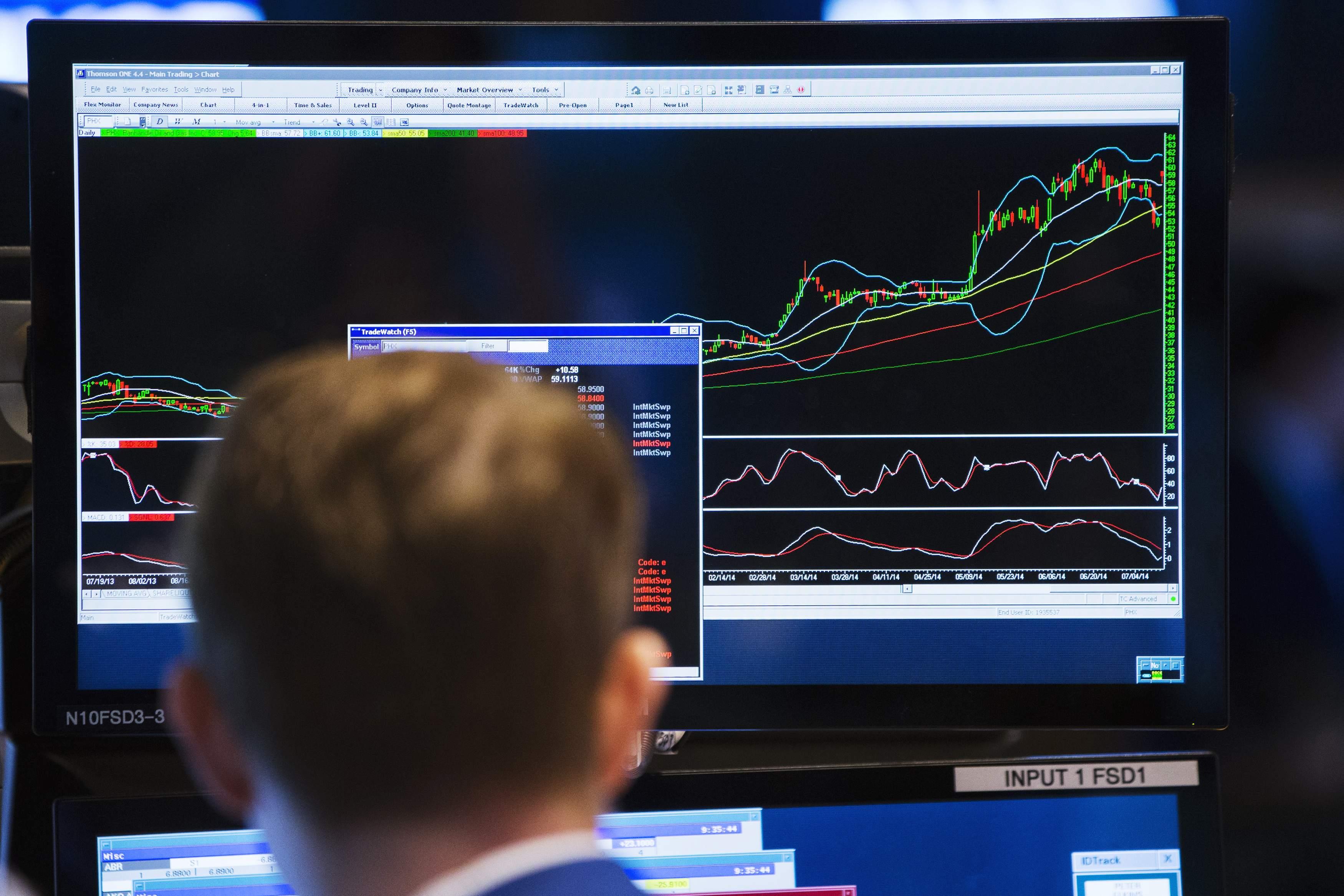Stocks Rebound as Ukraine Jetliner Tensions Ease
Bareksa • 23 Jul 2014

A trader looks at his screen while working on the floor of the New York Stock Exchange shortly after the opening bell in New York July 14, 2014. - (REUTERS/Lucas Jackson)
Equity markets globally were fairly robust, starting with Asia, Europe, and now Wall Street.
Bareksa.com - Global equity markets and the dollar rode a rebound in risk appetite on Tuesday that lifted the S&P 500 to a record high on signs of cooperation from Ukraine's pro-Russian separatists over last week's downing of a Malaysian jetliner.
Solid earnings and benign U.S. inflation in June also supported stocks on views that the U.S. Federal Reserve will maintain a slow path to paring its bond purchase program and will begin to raise interest rates only in the latter half of 2015.
After days of uncertainty, a train carrying the remains of some of the almost 300 airliner victims arrived in Ukrainian government territory and separatist leaders gave Malaysian authorities the aircraft's flight recorders.
The news helped settle market nerves, lifting shares in Asia, Europe and then on Wall Street, while weakening safe-haven assets like the yen, gold and government bonds, which have been in demand over the past week.
MSCI's all-country equity index rose 0.68 percent, while the FTSEurofirst 300 index of leading European shares climbed 1.32 percent to close at 1,373.75. All major European bourses closed up 1 percent or more.
The benchmark S&P 500 set a record intraday high, though gains on Wall Street were not as strong as the rally in Europe.
The S&P 500 closed a point under its closing record of July 3.
The Dow Jones industrial average ended up 61.81 points or 0.36 percent, at 17,113.54. The S&P 500 gained 9.9 points, or 0.5 percent, to 1,983.53 and the Nasdaq Composite added 31.313 points, or 0.71 percent, to 4,456.016.
Second-quarter earnings in general pointed to a market that still has room to rise.
"So far earnings have been pretty robust, better than a lot of people were looking for," said William Greiner, chief investment officer at Mariner Wealth Advisors in Leawood, Kansas.
While tensions remained high as Israel pounded targets across the Gaza Strip, saying no ceasefire was near, the fighting was viewed as no worse than on previous days.
"Things have not worsened," said Tom di Galoma, head of fixed income rates and credit trading at ED&F Man in New York.
"Equity markets globally were fairly robust, starting with Asia, Europe, and now Wall Street."
The euro fell to an eight-month low against the greenback, breaking below its key support of $1.35, largely on expectations the European Central Bank would provide more stimulus in the
coming months, lowering regional interest rates.
The single currency also hit a 5-1/2-month low versus the Japanese yen.
The euro lost 0.4 percent against the dollar to trade at $1.3469. Against the yen, the dollar rose 0.04 percent to 101.43.
The benchmark 10-year U.S. Treasury note rebounded slightly, up 3/32 in price to yield 2.4637 percent.
Brent crude for September delivery fell 35 cents to settle at $107.33 a barrel, while U.S. oil for August delivery slid 17 cents to settle at $104.42 a barrel. The U.S. August contract expires on Tuesday. (Source : Reuters)